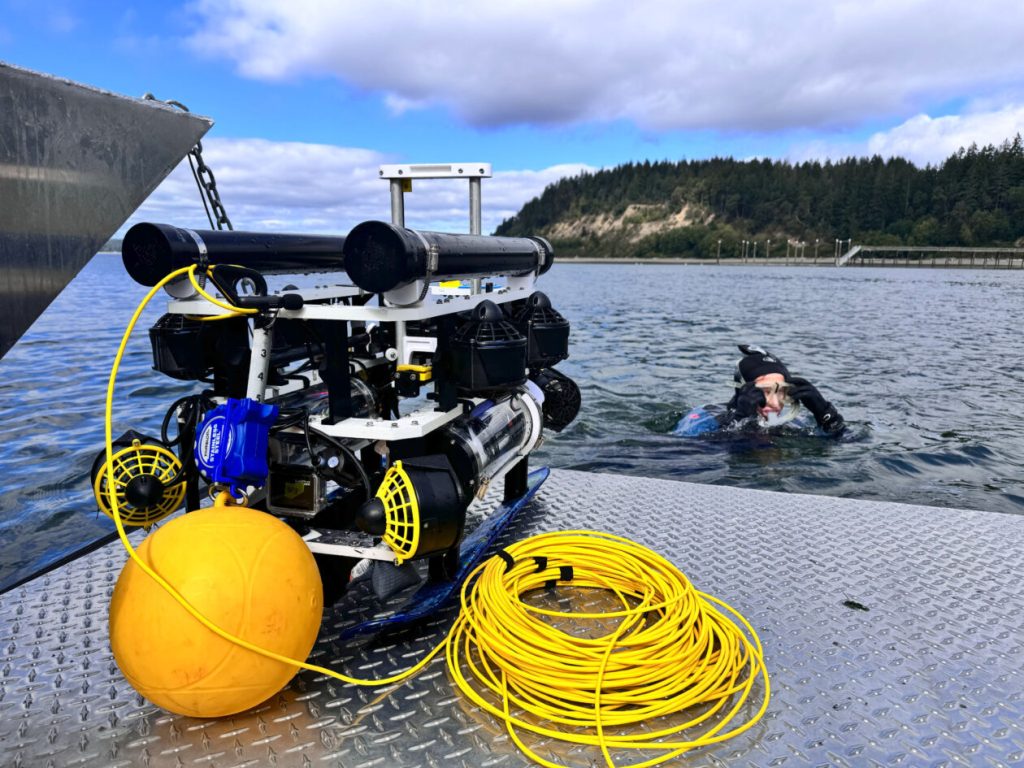Reefgen’s Grasshopper robot has been deployed into Washington’s Puget Sound as part of an eelgrass restoration effort. The marine robot is about the size of two milk crates and is operated by a marine “roboticist” who uses a gaming-style controller to plant shoots of eelgrass into the sediment on the seafloor. The startup company, Reefgen, has partnered with the Washington State Department of Natural Resources to field test the device and help reverse the degradation of marine ecosystems.
The eelgrass restoration effort in Washington’s Puget Sound is part of a larger initiative to conserve and restore a minimum of 10,000 acres of kelp and eelgrass by 2040. Worldwide, seagrass meadows and kelp forests are disappearing, and these plants play essential roles in marine ecosystems. Eelgrass provides refuge for baby salmon, filters water, stabilizes shorelines, and serves as a breeding ground for species like herring. While there are currently around 50,000 acres of eelgrass in Puget Sound, factors like water pollution and higher temperatures have led to the decline of these plants.
Reefgen’s Grasshopper robot is a new technology that aims to assist in the restoration of eelgrass and other marine habitats. The robot can plant eelgrass as seeds and shoots, as well as drill small holes into dead coral reefs to insert live coral plugs. By using these robots, Reefgen hopes to address the massive scale of habitat loss globally and provide a more efficient and cost-effective method for restoration efforts. The company is also establishing nurseries for growing seagrass that can be replanted in degraded areas.
The Grasshopper robot is currently in its early stages of development, with plans for future devices that can carry more plants and use quicker loading spikes for easier replating. The robots are built using a combination of off-the-shelf parts and 3D printed components, making them more affordable than similar commercial devices that can cost over a million dollars. Reefgen’s business plan involves offering “robots as a service” to partner organizations in need of restoration assistance, such as government agencies and conservation groups. The success of the project in Puget Sound has shown promise for future applications of the technology.
The partnership between Reefgen and the Washington State Department of Natural Resources has proven successful in the eelgrass restoration efforts at Joemma Beach State Park. The team has revisited the planted eelgrass and found that it was securely anchored and healthy. Washington Commissioner of Public Lands Hilary Franz has expressed excitement about the potential of robotics like the Grasshopper to improve restoration efficiency and reduce costs. As technology continues to advance, there is hope for the widespread adoption of these robots in marine restoration projects around the world.












